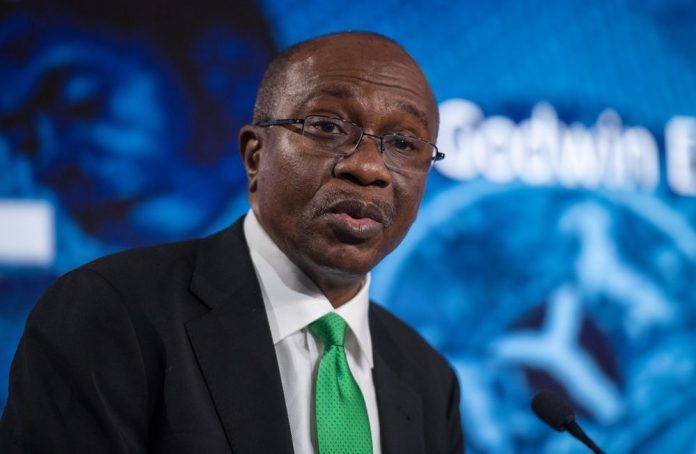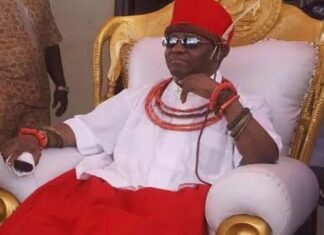By Jeph Ajobaju, Chief Copy Editor
e-Naira is planned for launch by the Central Bank of Nigeria (CBN) on October 1 as a pilot scheme of Central Bank Digital Currency (CBDC), according to CBN Director of IT Department, Rakiya Mohammed.
She said the CBN has been conducting research on digital currency since 2017 and may conduct a proof of concept before the end of this year, in this scheme tagged Project “GIANT” which uses Hyperledger Fabric Blockchain.
The CBN dubs its CBDC ‘e-Naira’.
Nairametrics reports that the CBN had earlier provided insight into how e-Naira would operate, explaining that it will be a legal tender with non-interest-bearing CBDC status, transaction limit for customers, and value-based transaction limit.
The CBN will issue a “Speed wallet” which will not compete with “wallets” created by banks and other innovators.
How to use e-Naira
To use e-Naira, someone has to download speed wallet, validate their account on it by using their phone number, National Identity Number (NIN) or Bank Verification Number (BVN), according to CBN guidelines cited by Nairametrics.
Once done, users can begin to use the wallet.
Users can send money using Peer-to-Peer (P2P) transactions through their wallets to other wallet holders, Person-to-Marchant/Business where e-Naira users can pay for items to merchants who have e-Naira wallets and vice versa.
Ministries, Departments and Agencies (MDAs) can use e-Naira to do remittances to their staff and members of the public once there is mass adoption of e-Naira and citizens can make payment to MDAs using e-Naira.
Benefits of e-Naira
Sean Stein Smith, a professor at the City University of New York, Lehman College, explained that “A CBDC issued and governed by a central bank or other governmental agency will help push the accounting and reporting conversation forward.
“Accounting might not make for splashy headlines, but in order for any crypto, and by extension blockchain, to achieve wider usage, accounting and reporting needs to be standardised.
“Looking at the tax issues linked to cryptocurrency alone highlights the need for standardised and consistent regulatory treatment that does not stifle further innovation.”
e-Naira is expected to make government remittances easier.
The case of many Nigerians not being able to receive their lockdown palliatives last year can be solved if Abuja can easily remit money to citizens. e-Naira will also facilitate implementation of CBN’s cashless policy.
As more people adopt CBDC for payments, the need for paper currency will reduce and the government can spend less on printing banknotes ,since new coins or e-Naira can be issued through Hyperledger Fabric Blockchain.
Data from CBN’s annual report, compiled by the currency operations department, shows that Nigeria spent ₦307 billion on printing banknotes between 2014 and 2019.
Financial fraud can be tracked easily as the CBN will be able to monitor the flow of money in and around the country because e-Naira is transparent and difficult to counterfeit.
Does Nigeria really need a CBDC?
Nairametrics says the Nigerian banking system is one of the most sophisticated in the world and it continues to advance its technological strength.
In Nigeria, domestic intra bank transactions are done within seconds and at most minutes, a feat the United States only achieved in 2017 through Zelle.
Before Zelle, fintech products like CashApp dominated instant transfers in the US where banks took two to three days to transfer money between themselves.
When they realised a lot of users started adopting fintech applications, they started integrating Zelle into their system to foster instant payments between banks so as to meet up with the competition.
Apart from technological strength, an average Nigerian transaction involves the use of four instant payment methods:
· Point of Sale (POS) machine
· Online banking
· USSD Code transfer
· Fiat currency
Most Nigerian retailers accept at least one of these payment methods for transactions.
If the intent of Abuja is to reduce the use of paper money, POS systems and online transfers can be encouraged through enlightenment campaigns, just like the cashless policy campaign in 2012.
Dipo Fatokun, former CBN Director of Banking and Payment System, defined financial inclusion as access to financial services available to the adult population in an economy.
A major component of e-Naira is the need for smartphones. This poses a problem because Pew Research Center says only 32 per cent of Nigerians use smartphones, about 66 million people in a population of 206 million.
The Guardian reports that Nigeria has around 170 million mobile phone users based on subscriptions but only between 25 and 40 million have smartphones, which represent between 10 and 20 per cent of the population.
CBN’s mandate includes financial inclusion but e-Naira limits the number of people who can have access to a digital wallet, let alone a CBDC.
CBDC costly, and may be rejected
A case can be made that CBDC helps monitor illicit transactions but in the real world, a Nigerian CBDC will be too costly to implement and may be rendered useless quickly compared to other existing systems.
The banking system is sophisticated enough to handle transactions as a means of payment. The CBN is better off spending its time and resources on pressing issues like combating double-digit inflation.
“The CBN aims for the CBDC to increase financial inclusion rapidly and easily. Creating and holding funds for citizens in a central bank account could offer better access to financial services for the unbanked or underbanked,” said Olumide Adesina, a writer for CoinDesk.
“However, some economists also believe the CBN can spend in deficit and shift funds directly to citizens without worrying about the national debt in times of economic hardship. In other words, a CBDC could present an obvious inflation risk.”
“This would also enhance control over the level of access a Nigerian citizen has to a financial system, particularly if the citizen attempts to engage in behaviours considered to be a threat by the financial authority.”
















